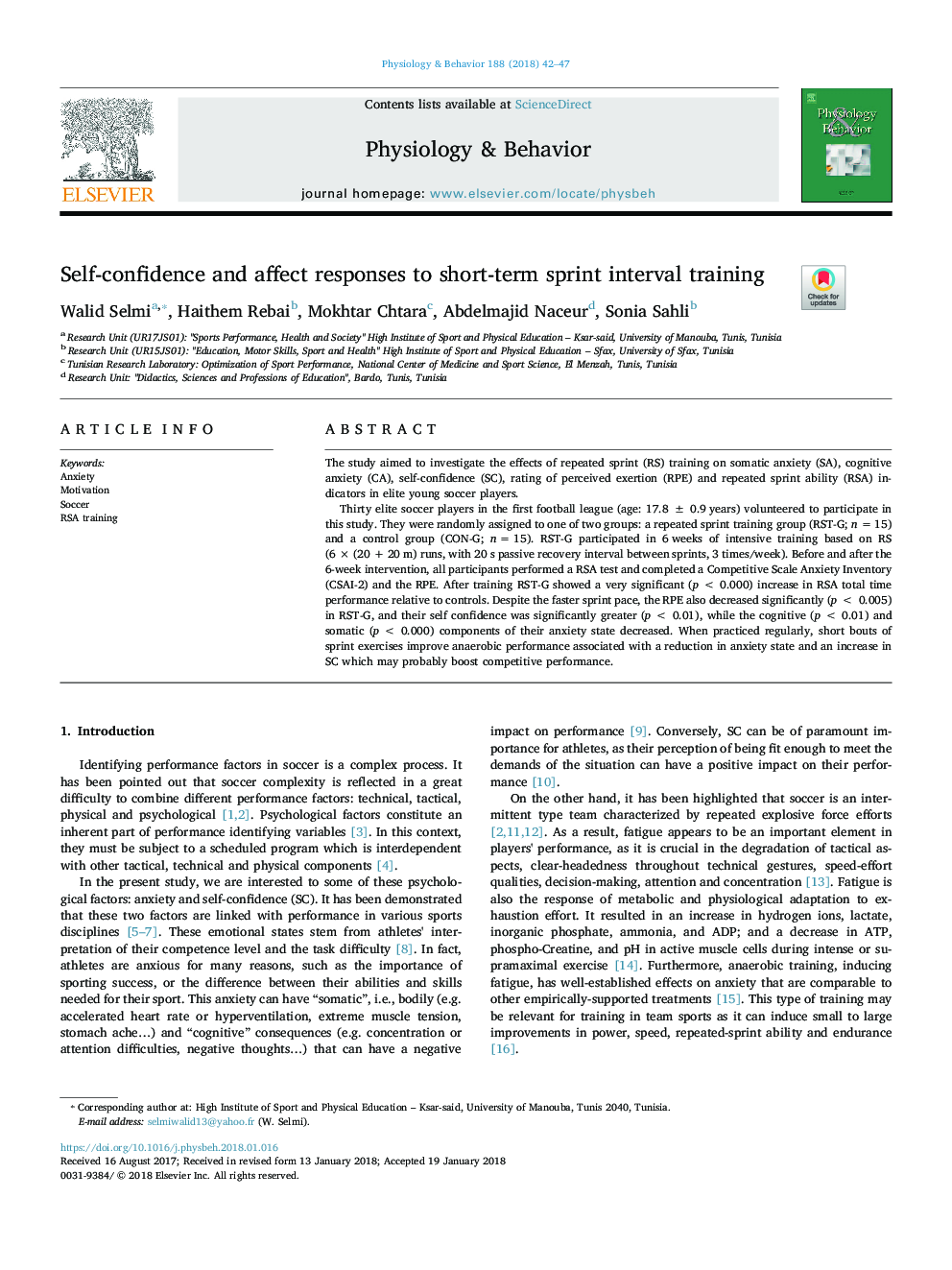| Article ID | Journal | Published Year | Pages | File Type |
|---|---|---|---|---|
| 8650565 | Physiology & Behavior | 2018 | 6 Pages |
Abstract
Thirty elite soccer players in the first football league (age: 17.8 ± 0.9 years) volunteered to participate in this study. They were randomly assigned to one of two groups: a repeated sprint training group (RST-G; n = 15) and a control group (CON-G; n = 15). RST-G participated in 6 weeks of intensive training based on RS (6 Ã (20 + 20 m) runs, with 20 s passive recovery interval between sprints, 3 times/week). Before and after the 6-week intervention, all participants performed a RSA test and completed a Competitive Scale Anxiety Inventory (CSAI-2) and the RPE. After training RST-G showed a very significant (p < 0.000) increase in RSA total time performance relative to controls. Despite the faster sprint pace, the RPE also decreased significantly (p < 0.005) in RST-G, and their self confidence was significantly greater (p < 0.01), while the cognitive (p < 0.01) and somatic (p < 0.000) components of their anxiety state decreased. When practiced regularly, short bouts of sprint exercises improve anaerobic performance associated with a reduction in anxiety state and an increase in SC which may probably boost competitive performance.
Keywords
Related Topics
Life Sciences
Biochemistry, Genetics and Molecular Biology
Physiology
Authors
Walid Selmi, Haithem Rebai, Mokhtar Chtara, Abdelmajid Naceur, Sonia Sahli,
